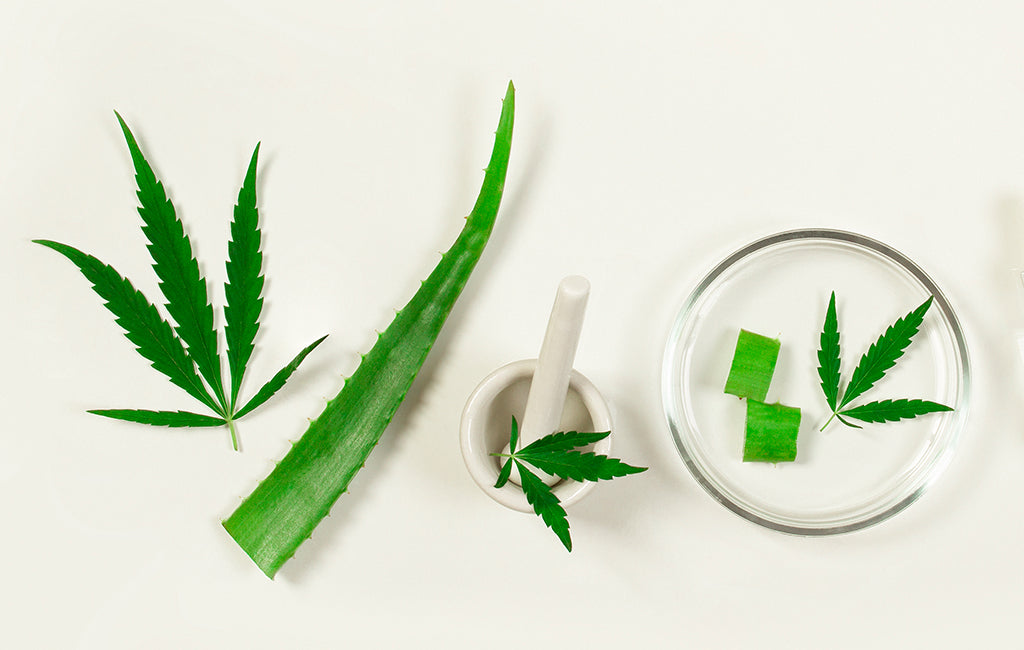
Morning sickness can punctuate the early stages of growing a baby, and certain odors and foods may trigger stomach discomfort and vomiting. Since CBD is known to help ease queasiness, you may be asking yourself, “Can CBD help with morning sickness?”
Unfortunately, using CBD when expecting is strongly discouraged by the FDA.
While CBD use is not advised for expectant mothers, it is believed that CBD can help quell queasiness and relax the body.
That said, new research is emerging about how CBD may affect the body and those who are having a baby.
Is CBD Safe When Expecting?
Let’s get into it: is CBD safe for a woman who is expecting? While CBD is confirmed as a non-toxic, safe substance for healthy adults, the substance presents a relatively new field of research and there’s simply not enough evidence for experts to confidently approve use for people who are expecting.
The FDA has yet to approve any CBD, except for one prescription drug that treats a rare brain condition. In 2019 the FDA issued warnings against the use of both CBD and THC when expecting and breastfeeding. However, their CBD advisory relates only to the appearance of potential contaminants and negative interactions with other drugs.
While these are real concerns, these comments do not relate to the specific nature of CBD use and rather reference external factors. On the flip side, studies do show that introducing THC when expecting can contribute to delayed brain development and lower weight in newborns.
Morning Sickness 101
Morning sickness is the onset of stomach discomfort associated with having a baby. The CDC indicates that “morning sickness” symptoms typically occur in the first three months.
Morning sickness can be mild to extreme. Extreme or severe morning sickness is typically characterized by persistent stomach discomfort and vomiting. But in most cases, queasiness is mild.
Queasiness is typically most common in the morning. That’s when estrogen and progesterone levels rise. More specifically, progesterone relaxes the stomach, which can produce stomach acids and trigger reflux.
Mount Sinai Hospital also indicates that a woman with morning sickness may experience:
- Increased salivation or mucus in the mouth
- Lightheadedness
- Fatigue
- Dry skin
- Dark urine
- Constipation
Hormones and Morning Sickness
Although the root cause of morning sickness as a symptom is unknown, medical professionals speculate that stomach discomfort originates from hormone imbalance. In addition to estrogen and progesterone, human chorionic gonadotropin (HCG) may also play a role in unpleasant symptoms of growing a baby.
HCG is released by the placenta, an organ that forms in the uterus when expecting. The structure regulates toxins and is responsible for managing the flow of oxygen, blood and nutrients to the growing fetus. However, it may also cause queasiness.
That said, HCG is an essential hormone when expecting that assists in:
- Fortifying the lining of the uterus – This ensures the structure can support a baby’s continued growth and helps protect the fetus from any potential contaminants.
- Halting menstruation – The menstrual cycle is a natural process in which the body expels unfertilized eggs. Once an egg is fertilized, this cycle must end in order for the body to retain and maintain the growing fetus.
Risks of Morning Sickness
To stay healthy, mama-to-be’s need particularly large nutrient stores.
However, vomiting can prevent bodies from absorbing essential nutrients, such as sodium, potassium and chloride, among other electrolytes.
As such, morning sickness may cause:
- Weight flux and loss
- Persistent dehydration
- Low levels of essential minerals
That said, if you’re unable to keep liquids down or produce lots of urine, it’s advised to seek
medical attention.
Who Is At Risk For Morning Sickness?
Expecting individuals who are at a higher risk of severe morning sickness include:
- Those with twins – More babies means more hormones! The placenta typically must increase its output to fortify additional lining and ensure structural soundness.
- Those with a hydatidiform mole – A hydatidiform mole describes a mass or growth that can form in the womb in the first stages. This is characterized by an abnormal placenta and partial or no fetal development.
- Previous complications – Previous complications may cause your body to have less control over hormone regulation, which may spike certain hormones when expecting.
- Those susceptible to motion discomfort – When your brain’s motion sensors miscommunicate with your eyes, ears and joints, you may experience motion discomfort. Unfortunately, hormonal imbalance can intensify this confusion and create discomfort.
CBD and Morning Sickness
While CBD use is not advised for expectant mothers, it is believed that CBD can help quell queasiness and relax the body. That said, it’s recommended to put your CBD away until after you’ve given birth and finished breastfeeding.
That said, let’s dig into the relationship between CBD and stomach discomfort.
At its core, queasiness is a computing error in the brain. Motion discomfort for example, is the result of the brain’s inability to reconcile the sensation of a stationary position with visual movement. Morning sickness, on the other hand, occurs when certain hormones trigger the brain to believe the gut is unwell, causing a vomit reflex.
So, how does CBD impact the gut-brain axis?
In the body, cannabidiol (CBD) interacts with receptors found in the endocannabinoid system (ECS), a part of the central nervous system that regulates the body’s chemical signaling to the brain.
ECS receptors are found throughout the body, including our brain and organs. As such, it’s believed that cannabinoids in CBD can imitate the endocannabinoids of the ECS to interact with these receptors.
As a result, CBD may help combat stomach discomfort in two ways:
- Increase serotonin production – When too much serotonin floods into your gut, you may experience stomach discomfort. Luckily, some studies suggest that CBD can help regulate serotonin levels and ease squeamishness.
- Increase circulation – Increased circulation can stabilize pathways to reduce stress caused by a chemical imbalance and ease stomach discomfort. That said, CBD can act as an anti-anemic, a substance that encourages the production of red blood cells, which carry oxygen throughout the body.
Alternative Ways to Manage Morning Sickness
So, CBD is off the table for expectant mothers when it comes to managing morning sickness, which means one should avoid using CBD cream when expecting.
Luckily, there are a host of home remedies and medical solutions available to ease stomach discomfort:
- Ginger – This root has long been used to soothe the stomach. Experts at Johns Hopkins Medicine indicate that ginger is an antioxidant that helps maintain stable blood pressure and encourages digestive function. It’s generally safe to drink up to four cups of ginger tea a day when expecting.
- Breathing exercises – In the morning, take a few moments to yourself to collect your thoughts and meditate. Increasing your oxygen circulation with deep-breathing may provide some stomach relief.
- Hydration – Dehydration can intensify stomach discomfort. Make sure you always have a full water bottle nearby to replenish your water supply and soothe your stomach.
- Medication and supplements – Some doctors prescribe doxylamine for morning sickness, which is typically accompanied by B-6 supplements.
CBD For Moms
If you don’t choose to breastfeed after giving birth, you can slowly start to incorporate CBD into your routine. After giving birth, the uterus contracts to return to its normal size. While your body recovers, you may experience cramps, soreness, fatigue and even feelings of stress or sadness.
That said, CBD can help support parents in the following ways:
- Relieve physical discomfort – As your body recovers from birth, you can experience cramps and general physical discomfort. Studies suggest that CBD has anti-inflammatory properties, which can help ease sore muscles.
- Reduce stress – When is the best time of day to take CBD? Nine months of growing a baby and caring for a new baby can be stressful! Add a few drops of CBD oil to your morning tea or eat a CBD gummy after bedtime to relax your mind and body.
- Improve sleep – While it’s certainly difficult to sleep soundly with a new baby, CBD may help improve your quality of sleep when you areable to get some shut eye.
- Increase appetite – Getting enough nutrients after birth is just as important as during. CBD may help to increase your appetite to nourish your body and help you recover fully. Learn more about CBD for appetite stimulation.
- Stabilize mood – CBD may balance hormone levels to help our bodies find homeostasis and feel mentally better.
How to Take CBD
The Center for Forensic Science of Drug Rehabilitation and Recovery (CFAH) suggests three ways to introduce CBD to your body following the birth of your baby:
- Orally – This method involves consuming CBD oil or a CBD gummy. Once swallowed, the CBD travels to your small intestine, where it then enters the bloodstream. This process typically takes about two hours.
- Sublingual administration – CBD oil is dropped under the tongue, where it’s quickly absorbed by blood vessels and enters the bloodstream. This method of absorption takes about 15 minutes.
- Topically – A CBD cream or lotion can provide localized relief to tense muscles and sore joints.
The CFAH also states that oils, which tend to have higher CBD concentrations, are the most efficient way to introduce CBD to your system and monitor CBD dosage.
CBD Dosage
A universal CBD dosage to ease stomach discomfort has not been identified.
Each CBD product should come with specific dosage instructions that correlate to age and weight. Medical professionals can also be consulted to create a regime that works best for you and your body.
If you need a launch point, the general product standard is 25 milligrams (mg), taken twice a day. That said, products may contain anywhere from five to 100 mg of CBD.
Locating Quality Products
Without federal regulation, it’s important to source quality products to ensure you’ll have access to the full benefits of CBD. Although multiple states have legalized CBD, testing requirements vary.
Consumer Reports recommends the following when purchasing CBD products:
- Locate or request a certificate of analysis (COA) – A COA serves as a company’s proof of testing. This document should list CBD and THC levels and potential contaminants.
- Look for transparency – Consider companies who are open about CBD content percentages and have this information readily available.
- Avoid products that make large claims – Steer clear of products that make blanket health claims or use the terms “cure” or “solve.” Since CBD is not yet FDA-approved, these statements are not allowed and should raise suspicion.
Find Balance With Zebra CBD
When expecting, it’s more important than ever to prioritize your health. Avoid CBD and pay attention to your body’s signals and symptoms to make sure you and your baby are healthy and thriving. You can also incorporate natural ways to relieve stomach discomfort, such as ginger tea, deep-breathing and plenty of water.
When you can safely take CBD again, Zebra CBD is here.
Our seed-to-bottle approach ensures the highest product quality — it’s 100% organic, cultivated in the USA and third-party tested. Plus, every bottle comes with a certificate of analysis for full transparency.
Our endless range of products is designed to fit seamlessly into your routine. Tip the scales in your favor and make Zebra CBD your first stop on your path to wellness.
Source:
Mount Sinai. Hyperemesis gravidarum Information. https://www.mountsinai.org/health-library/diseases-conditions/hyperemesis-gravidarum
Medeline Plus Medical Encyclopedia. Hyperemesis gravidarum. https://medlineplus.gov/ency/article/001499.htm
Hopkins Medicine. Ginger Benefits. https://www.hopkinsmedicine.org/health/wellness-and-prevention/ginger-benefits
CFAH. Does CBD Increase Your Appetite. https://cfah.org/does-cbd-increase-appetite/
University of Southampton. Negative mood increases selective attention to food cues and subjective appetite. https://pubmed.ncbi.nlm.nih.gov/19815043/
Consumer Reports. How to Shop for CBD. https://www.consumerreports.org/cbd/how-to-shop-for-cbd/









